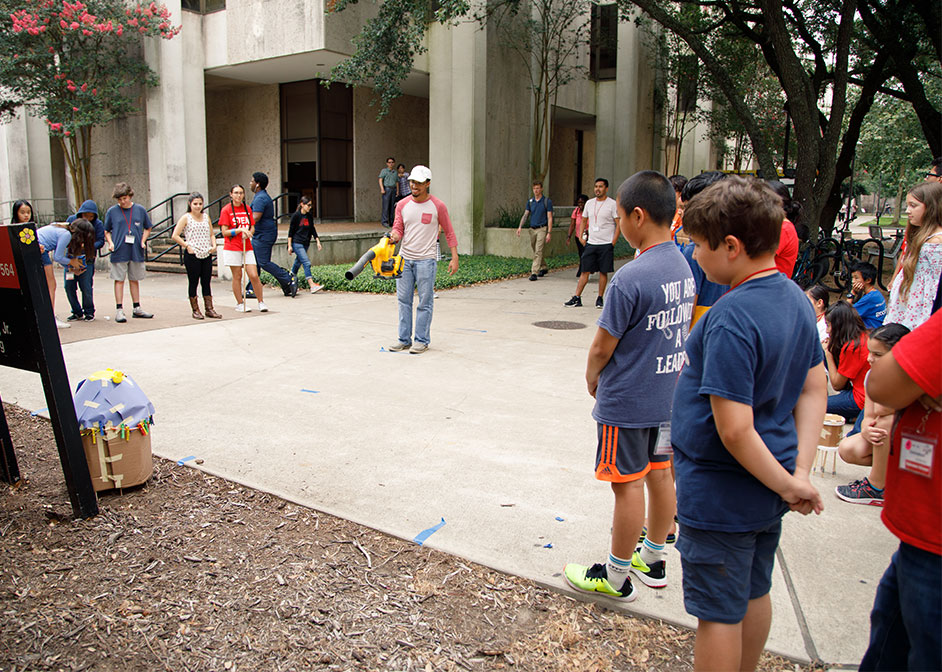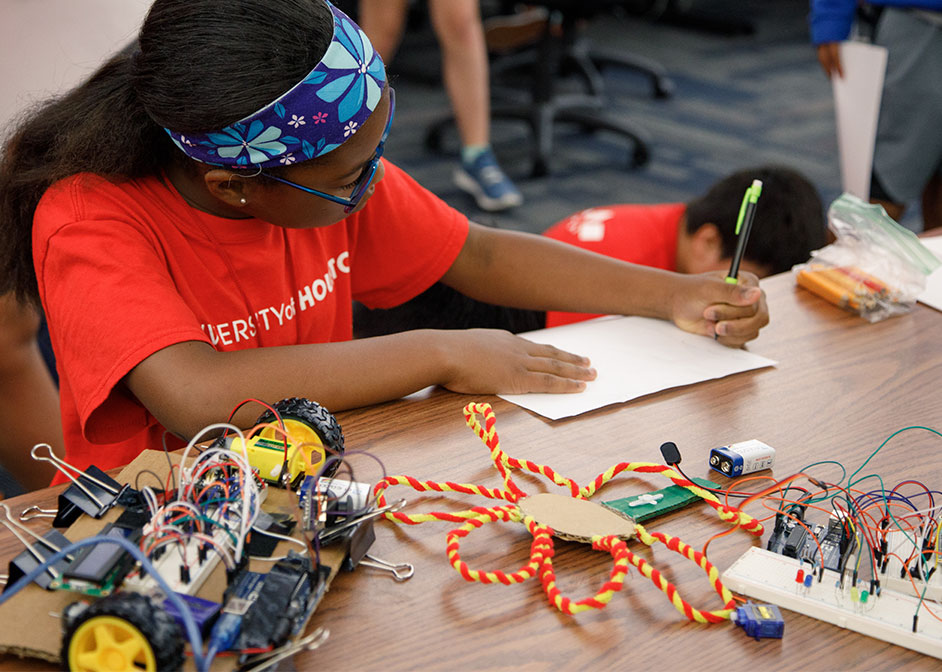Offerings Include Robotics, Raspberry Pi Programming and Extreme Science
Building and testing hurricane-proof homes. Programming robots to navigate obstacle courses. Designing working apps for a smartphone. Creating catapults to explore parabolas.

These activities are part of the diverse set of offerings at the University of Houston Equinor Summer STEM Camps. Designed for students entering grades 5 through 8 in the fall, campers can register for one week or multiple weeks.
These camps integrate science, technology, engineering and mathematics (STEM) concepts, offering students fun, hands-on activities that are also educational.
“Campers make new friends, enhance their problem solving and critical thinking skills, and get an opportunity to explore college life at an early stage,” said Perri Segura, clinical associate professor of mathematics, and director of the Equinor Summer STEM Camps.
Themes Integrate STEM Concepts

Camp themes include topics such as ‘Create with Raspberry Pi,’ ‘Crime Scene Investigators,’ ‘App Inventors’ and ‘Robotics.’ This year, by popular request, new themes include ‘Magical Math,’ ‘Extreme Science,’ ‘Drones’ and ‘Arduinos,’ which is an intermediate-level computer programming camp.
All in all, this year’s lineup includes nine different themes, with weeklong camps running from June 3 to July 19.
“These camps help students avoid summer brain drain, by immersing them in hands-on, dynamic STEM activities,” Segura said.
Camps Organized and Hosted by teachHOUSTON

The Equinor Summer STEM Camps are organized and hosted by teachHOUSTON, which is a collaboration between UH’s College of Natural Sciences and Mathematics and College of Education. The teachHOUSTON program offers undergraduates the opportunity to graduate with a STEM degree as well as a secondary teaching certificate.
Camps are taught by a lead teacher, who is a teachHOUSTON alum and certified teacher. Assisting the lead teachers are camp counselors, who are teachHOUSTON undergraduates.
“The undergraduate students serving as camp counselors gain invaluable teaching experience,” Segura said.
Funding for the camps is provided by the energy company, Equinor.
- Rachel Fairbank, College of Natural Sciences and Mathematics